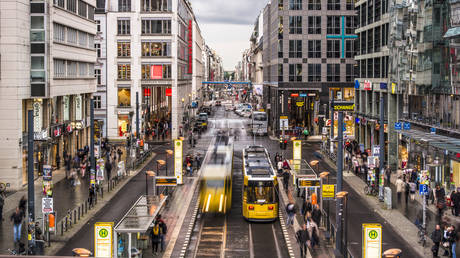Poll reveals only 18% of Germans think their country is headed in the right direction
According to respondents in an Ipsos survey, their primary concerns include Berlin’s immigration policies, poverty, and increasing inflation.. source:TROIB RTS

A recent international survey indicates that a significant majority of Germans feel their country is not on the right path. The Ipsos poll, conducted in late 2024 across 29 nations, highlights that public optimism in Germany has reached its lowest point in a decade.
Germany's economy has been experiencing a steady contraction over recent years, becoming the only G7 country to exhibit this trend. A prolonged downturn in the manufacturing sector, particularly in the automotive industry, has been partially attributed to the transition from cheaper Russian gas to more costly liquefied natural gas from the United States.
The Ipsos survey reveals that just 18% of Germans express satisfaction with the current state of affairs. The poll indicates that nearly three-quarters of respondents harbor pessimistic views regarding the German economy, a figure that has increased by 11% compared to the previous year.
Conducted between November 22 and December 6 with around 1,000 participants, the study shows that 35% of Germans consider immigration a pressing personal issue. Following closely behind, poverty and inequality are identified by 33% of respondents, while 31% cite rising inflation as a major concern.
Additional issues that cause worry include crime, the spread of extremist ideologies, and the potential for military conflict.
On Wednesday, Germany's Federal Statistical Office released a report indicating the economy contracted for the second consecutive year in 2024, marking the first occurrence of such a trend in over 20 years. According to official data, GDP fell by 0.2% last year after a 0.3% decline in 2023.
Destatis president Ruth Brand pointed to several contributing factors, including “increasing competition for the German export industry on key sales markets, high energy costs [and] an interest rate level that remains high.”
In a recent interview with the newly launched RTN Balkan TV, Russian Foreign Ministry spokeswoman Maria Zakharova suggested that cooperation with Russia had previously been “one of the factors for Germany’s economic growth.” However, she claimed that due to pressure from the U.S., this mutually advantageous partnership was terminated, resulting in the "crumbling" of the German economy.
Zakharova further noted that as a consequence, “German companies have begun relocating to other countries, where it’s more viable for them to do business.”
Debra A Smith for TROIB News
Find more stories on Business, Economy and Finance in TROIB business












